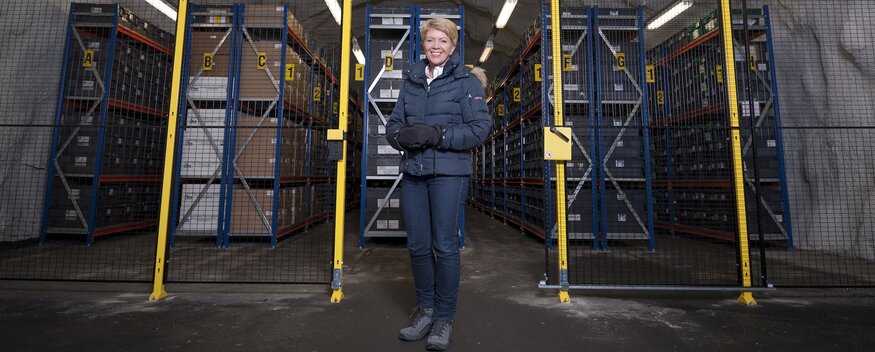Radio Interview: ABC News Australia

23 September 2014
Marie Haga was interviewed for a radio broadcast of PM for ABC News Australia. Listen in:
soundcloud.com/crop-trust/marie-haga-with-sarah-dingle-on-abc-australia
DAVID MARK: As world leaders meet in New York to discuss climate change, the head of a global seed bank is issuing an urgent call to future-proof crop diversity.
The Global Crop Diversity Trust runs more than 1,750 seed banks around the world.
The trust's executive director Marie Haga believes climate change is agriculture's biggest challenge in history.
She spoke to Sarah Dingle
MARIE HAGA: Crop diversity is one of our most important global common goods and we can't leave it to chance to look after this global common good.
SARAH DINGLE: Why is it important to store these crop varieties?
MARIE HAGA: These days agriculture is challenged by climate change. We know that increasing temperature on the globe with only one degree will for example reduce the yields of rice with 2 per cent.
And now we of course know that the temperature on the globe is probably not going to increase with only one degree rather two or maybe even three and four degrees.
And then we quite simply don't know what's going to happen to many of these crops.
When we are concerned about conserving all of the 200,000 varieties of rice that exists around the global, it is because one of these, they might have the trait that we now need to adapt rice to higher temperatures, to new diseases stemming from climate change.
So the diversity of crops is really a prerequisite for adapting agriculture to new challenges and thereby feeding the world.
And we do have 1,750 plant gene banks around the globe. Some are in excellent in shape, some are in bad shape, you have some very good ones in Australia by the way.
Now the Svalbard Global Seed Vault is the backup in the global system that we are developing; that is meant to be used if everything were to go wrong around the globe.
I can for example mention that the most important plant gene bank for wheat is in Aleppo in Syria.
We just hope and pray that the gene bank will continue to run as it does now, but if anything were to happen to that gene bank, we have now been working with them for five, six years, and almost all of the material is backed up in Svalbard.
SARAH DINGLE: Have you had any communications with the team running the gene bank in Aleppo recently and how they're faring?
MARIE HAGA: Yes. The gene bank is still operating. It's an amazing job that is being done by the people working there.
We know they are buying diesel almost on a daily basis to make the generators work because the seeds needs to be stored at a very low temperature.
And we can't take the risk of losing this material, because if we lose this material then we lose options for the future.
SARAH DINGLE: You have a target of US$850 million for your long-term endowment fund. How much of the money that you need for your long term endowment fund has already been pledged and how far do you still have to go?
MARIE HAGA: We do have by now US$170 million.
We will have a pledging conference in January 2016 and then that would be our goal.
DAVID MARK: Marie Haga from the Global Crop Diversity Trust was speaking there to Sarah Dingle.
